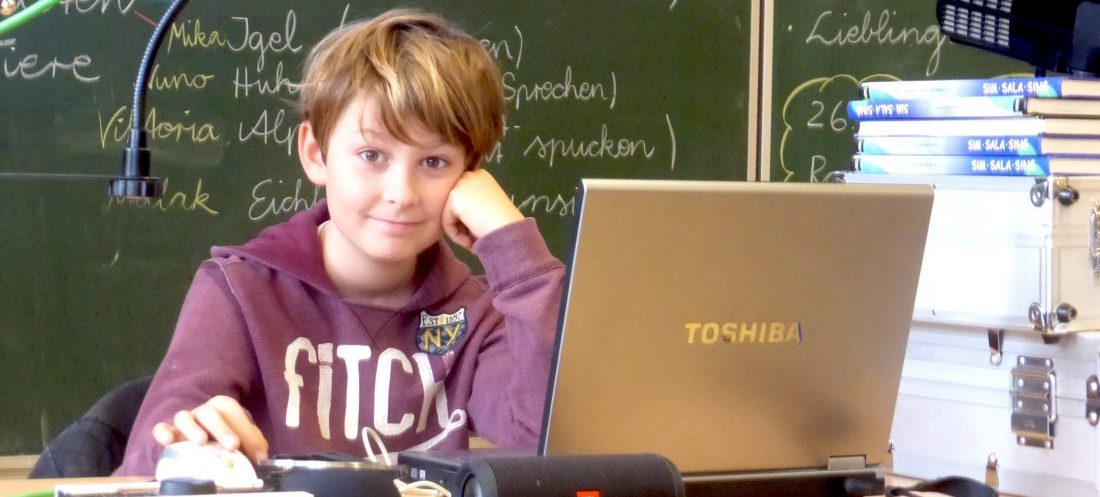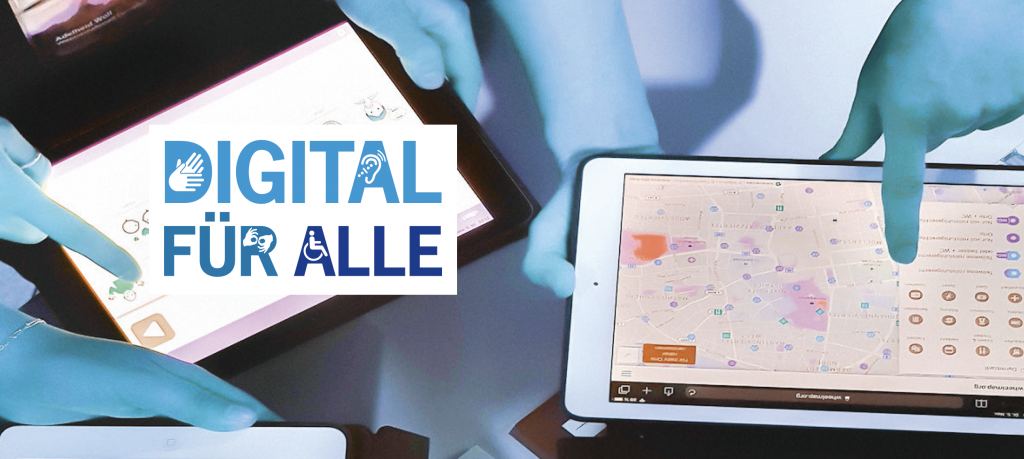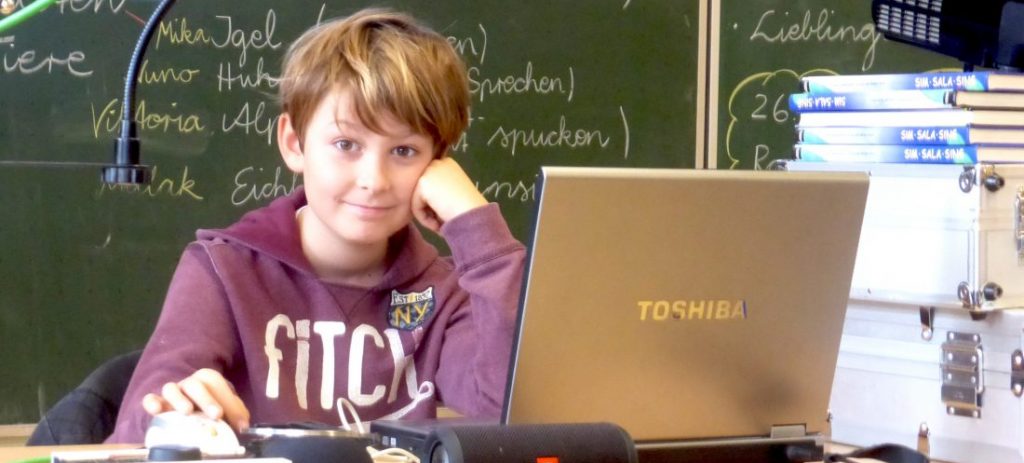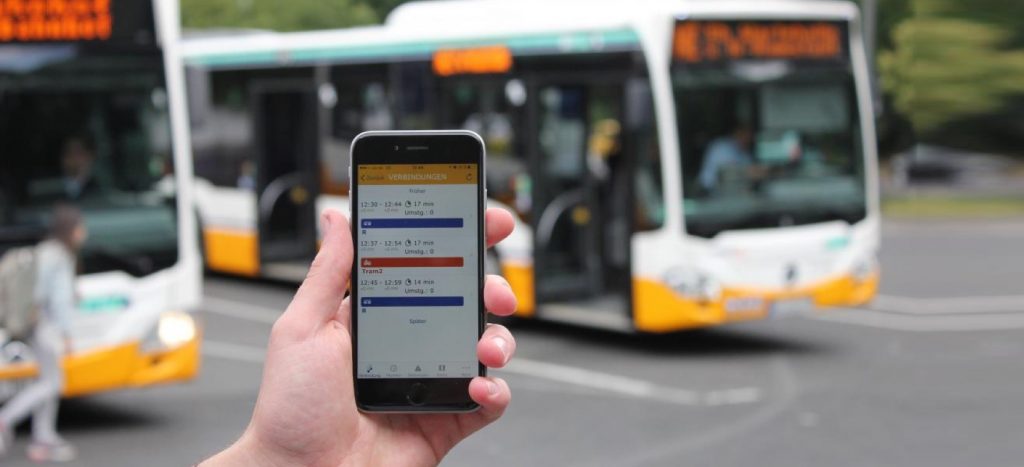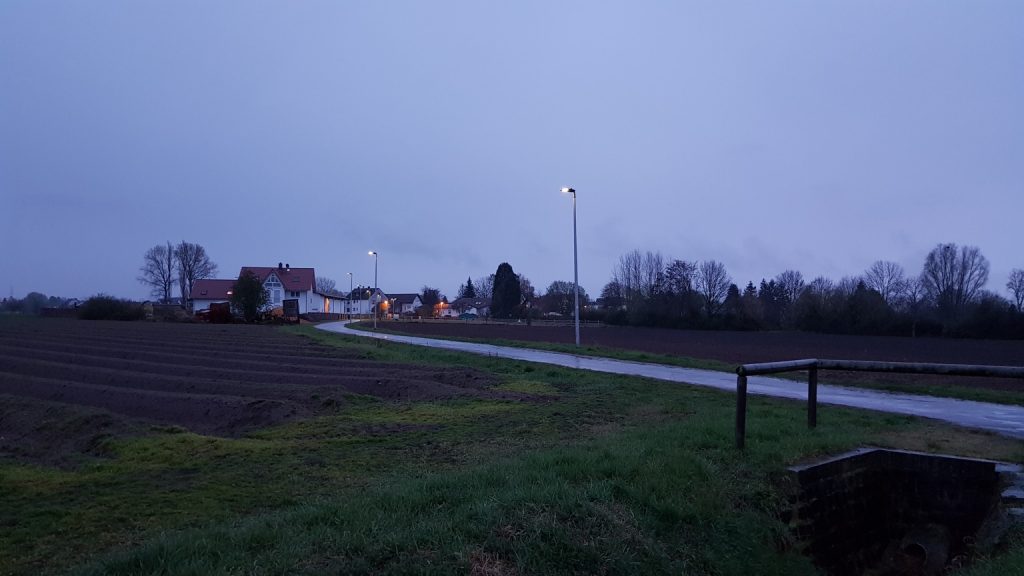Confident in the digital world
The internet and media have become an inseparable part of our everyday lives. If we can gain a better understanding of how the media world works and how it affects us, we can be more confident engaging with it. With this in mind, the team from Hesse’s Institute for Media Education and Communication (MuK) is offering free workshops, training courses and lectures as part of Smart City’s House of Media Education project. For example, this has been happening at parents’ evenings and student events at schools in Darmstadt, such as the Justus-Liebig-Schule (LIO). ‘Year 6 is a critical time for examining the media’, says LIO school headteacher Thomas Schmidt, as he explains why ‘Media Day’ is on the timetable for class this morning. ‘When we ask the parents of Year 5 students at information evenings whether their children have a mobile phone, we learn that very few do. But when we ask the same question at the first Year 6 parents’ evening, we find that almost every child has one.’ This is no different with the current Year 6 students. Without exception, everyone has a smartphone, which they use to write WhatsApp messages, view funny pictures or videos on TikTok or upload their own content, search for homework help on YouTube or watch films on Netflix.
‘The money you pay is your data’
‘How can all these things cost you nothing? Many people work at the companies that offer all of this and earn money there,’ asks media educator and MuK Managing Director Peter Holnick. Smart City project’s cooperation partner is met with the shrugging of shoulders. ‘The money you pay is your data – because it’s interesting and valuable for these companies’, says Holnick. ‘The more data they have from us, the more they learn about which apps we use for how long, which videos we watch or who we write to, the better companies will be able to understand us – and influence us.’ Holnick goes on to tell his astonished listeners about an example from the American online shopping platform Amazon. ‘[The company] sends people products that they have seen on the website several times – but without ordering them. 70% of these packages are kept.’
The “House of Digital Media Education
The digital city project is a joint project of the social department of the science city Darmstadt and the Hessian Institute for Media Education and Communication (MuK). It aims to enable children, young people and adults of all generations to find their way in today’s digital world His media-pedagogical offer focuses on people and not technology For example, this has been happening at parents’ evenings and student events at schools in Darmstadt

Mit dem Laden des Videos akzeptieren Sie die Datenschutzerklärung von YouTube.
Mehr erfahren
How can the media become dangerous for us? And how can we
avoid that? in order to address these questions, the
LIO Year 5 students were invited to participate in two of five different workshops.
I thought “The Power of Brands” was really cool’,
a girl to her friend during the first break about her
workshop experience „I did not know, that there are so many in brands
Hide signs.Crossmedia designer Mareike Biek taught
her about the symbolic world of logos and the role of influencers,
letting her design her own logo at the end. In ‘The Power of
the Media’, online journalist Judith Michler
We rely 80% on our eyes, even
though they are the easiest to deceive.’ Among other activities, she shows images of
people who were either photographed from below or from above
the latter always appear more confident and influential.
‘Once we know these things, we are not so easily fooled’, says Michler.
A game that causes stress is the wrong choice
It may be the case that a few of the boys didn’t pay too much attention when they decided to take part in the ‘Health and Gaming’ workshop – but they’re the right target group. ‘I want to find out about some cool games here’, says one of participants to the workshop leader Sebastian Mehmel. But the self-confessed ‘gamer since childhood’ wants to talk to girls and boys about the impact of computer games on their health. The room soon fills with astonishing stories about destroyed screens and consoles being thrown out of the window. ‘Above all, gaming should be fun. If it’s not fun or creates stress, it’s the not the right choice or you’re playing it wrong’, says Mehmel.
The ‘Social Networks’ workshop is all about right and wrong behaviour, online bullying and images that are forever haunting the internet. The ‘Beautiful New Imagery – Advertising, Media and Role Clichés’ workshop with children’s author Ilona Einwohlt addresses how media and brands consciously perpetuate gender clichés and thus shape patterns of thought and behaviour. ‘Wow,’ exclaims one of the boys attending. ‘I’m going to pay more attention to that.’
What Peter Holnick says in his ‘Lost in the Media World – My Media Biography’ workshop applies to all children and young people of this age: ‘You belong to the first generation that is growing up in the analogue and digital worlds. It’s especially important for you right now to find out who you are and what you want or don’t want. And for that, you need those around you. Because most of them are also in the digital world, you also need to learn to understand it and to cope with it.’
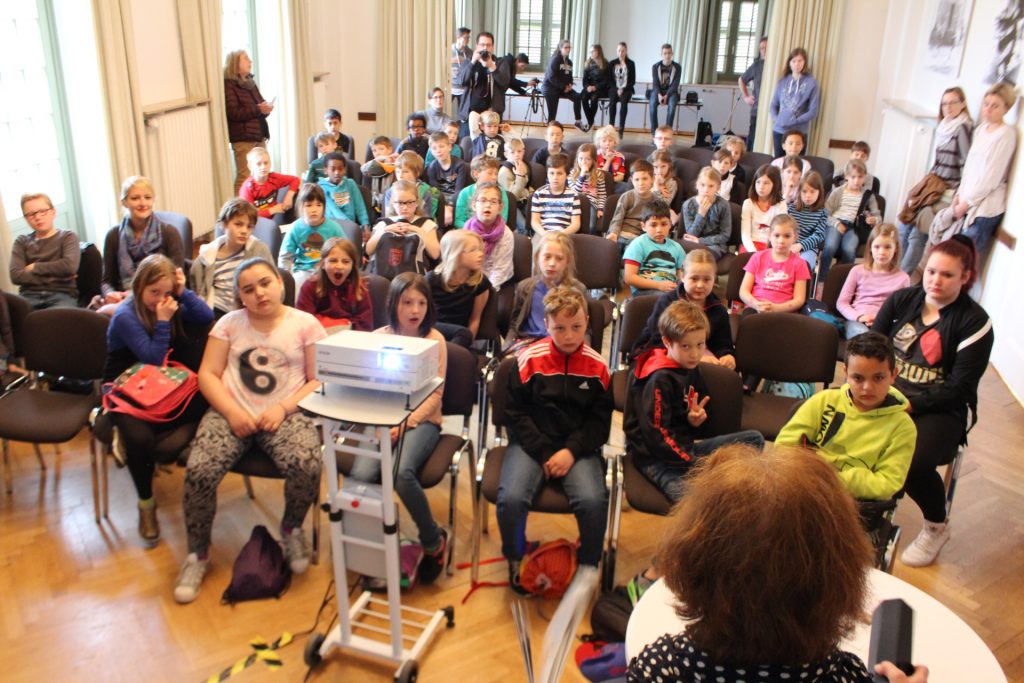
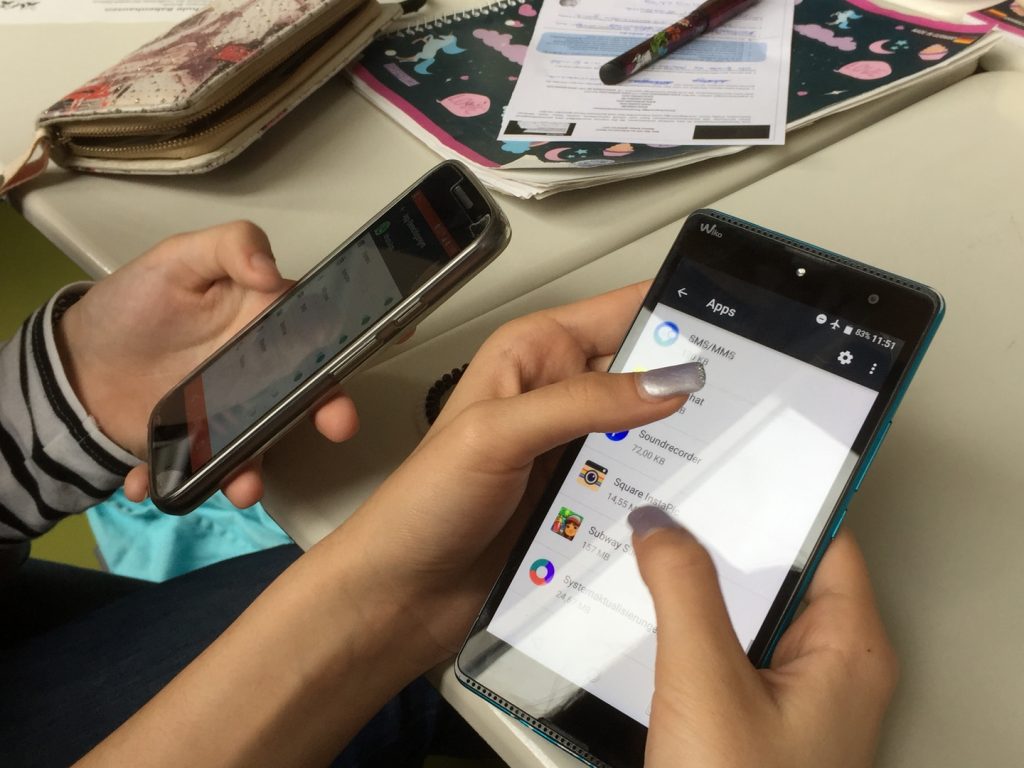
CONTACT
House of Digital Media Education
Peter Holnick,
Ilona Einwohlt
Adress
Forstmeisterstr. 11
64285 Darmstadt
Tel.: 0175 9341336
